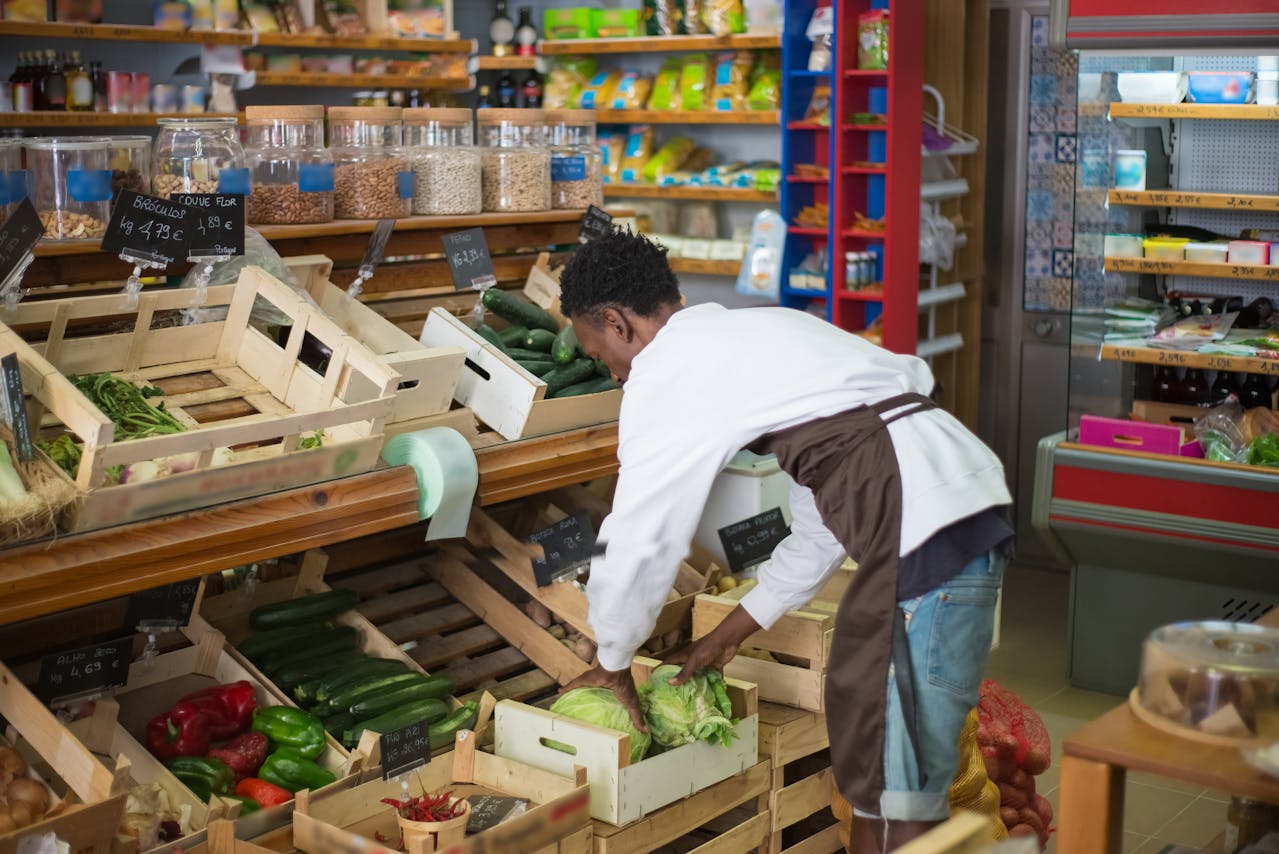Grocery shopping is a routine part of life, but have you ever wondered what the people who work in grocery stores actually avoid buying for themselves? Grocery workers see the ins and outs of every aisle, from stocking shelves to cleaning up spills, and they develop a keen sense for which products are best left untouched. Their unique perspective can help you make smarter choices and avoid common pitfalls that most shoppers never notice. If you want to shop like an insider and avoid wasting money or risking your health, it pays to know which shelf items grocery workers secretly avoid. Here’s what you need to know before your next trip down the aisles.

1. Pre-Cut Fruits and Vegetables
Pre-cut fruits and vegetables might seem like a convenient option, but grocery workers often steer clear of these items. The reason? Pre-cut produce is more susceptible to bacteria and spoilage due to increased surface area and handling. These products also tend to have a much shorter shelf life than their whole counterparts, and they’re often marked up significantly in price. To save money and minimize your risk of foodborne illness, opt for whole fruits and vegetables and cut them yourself at home. The Centers for Disease Control and Prevention (CDC) notes that fresh-cut produce can be a source of foodborne illness if not handled properly.
2. Deli Meats from the Open Case
Deli meats are a staple for many, but grocery workers know that the open deli case can be a breeding ground for bacteria. Sliced meats that sit exposed to air and fluctuating temperatures are more likely to harbor harmful bacteria like Listeria. Workers often prefer pre-packaged deli meats, which are sealed and have a lower risk of contamination. If you do buy from the deli counter, ask for freshly sliced meat and consume it within a couple of days. Always check for cleanliness and proper food handling practices behind the counter.
3. Bulk Bin Items
Bulk bins can be a great way to save money and reduce packaging waste, but they come with their own set of risks. Grocery workers often avoid these bins because they see firsthand how often customers reach in with unwashed hands or use the wrong scoops. Cross-contamination is a real concern, especially for items like nuts, grains, and dried fruit. If you have allergies or a sensitive stomach, it’s safer to buy pre-packaged versions of these foods. The U.S. Food and Drug Administration highlights the importance of proper handling and sanitation in bulk food sections.
4. Discounted Meat and Seafood
It’s tempting to grab a package of meat or seafood with a bright discount sticker, but grocery workers know these deals often come with a catch. Discounted proteins are usually close to their expiration date, and while they might still be safe, the window for safe consumption is very short. Workers have seen too many cases of spoiled meat being sold at a discount, only to be returned by unhappy customers. If you do buy discounted meat or seafood, cook it the same day and check for any off smells or discoloration before using.

5. Store-Brand Canned Goods with Dented Cans
Canned goods are pantry staples, but not all cans are created equal. Grocery workers avoid cans with dents, especially along the seams or rims, because these can compromise the can’s integrity and allow bacteria to enter. While store-brand canned goods can be a good value, always inspect the can for damage before purchasing. A small dent on the side is usually harmless, but anything near the seams is a red flag. Botulism, though rare, is a serious risk associated with damaged cans.
6. Bakery Items Late in the Day
The bakery section is full of tempting treats, but grocery workers know that freshness matters. Items left on the shelves late in the day are often past their prime, especially pastries and bread. Workers see how long some items sit out, and they know that unsold baked goods are sometimes repackaged or discounted the next day. For the best quality, shop the bakery section in the morning when items are freshly baked. If you’re shopping late, check for signs of staleness or dryness before buying.
7. Ready-to-Eat Sushi
Sushi from the grocery store can be a quick meal. Still, grocery workers are wary of its freshness and safety. Sushi is highly perishable, and even with refrigeration, it can quickly become unsafe to eat. Workers have seen sushi trays sit for hours, sometimes even past their recommended sell-by times. If you crave sushi, it’s best to buy it from a reputable restaurant or make it at home. If you do buy grocery store sushi, check the packaging date and consume it immediately.
Shop Like a Grocery Insider
Knowing which shelf items grocery workers secretly avoid can help you make safer, smarter choices every time you shop. By paying attention to freshness, packaging, and handling, you can protect your health and your wallet. Next time you’re in the store, take a closer look at what you’re putting in your cart and consider whether it’s something a grocery worker would buy. Your shopping habits might just change for the better.
What shelf items do you avoid at the grocery store? Share your tips and stories in the comments below!
Read More
5 Groceries Not to Buy at Costco If You Want to Save Money
Produce Storage: 12 Fruits to Ripen on the Counter Before Refrigerating
The post 7 Shelf Items Grocery Workers Secretly Avoid appeared first on Grocery Coupon Guide.







